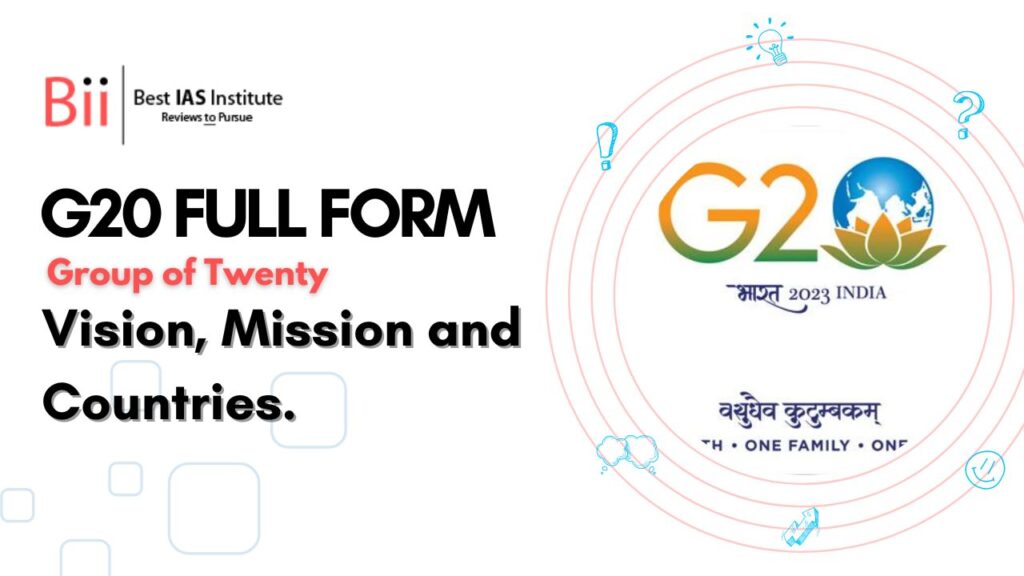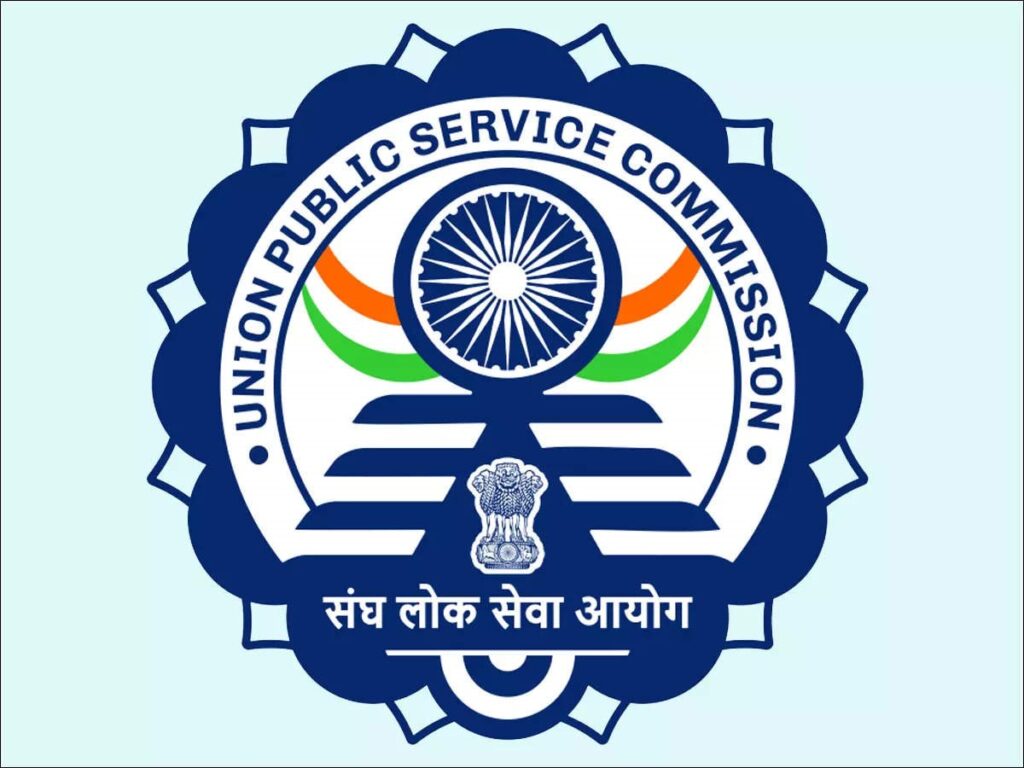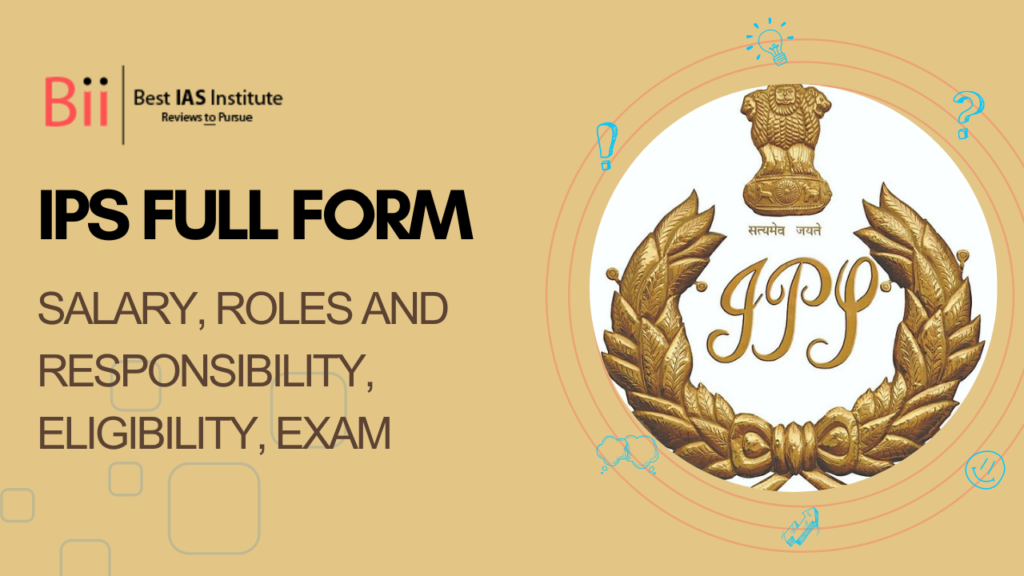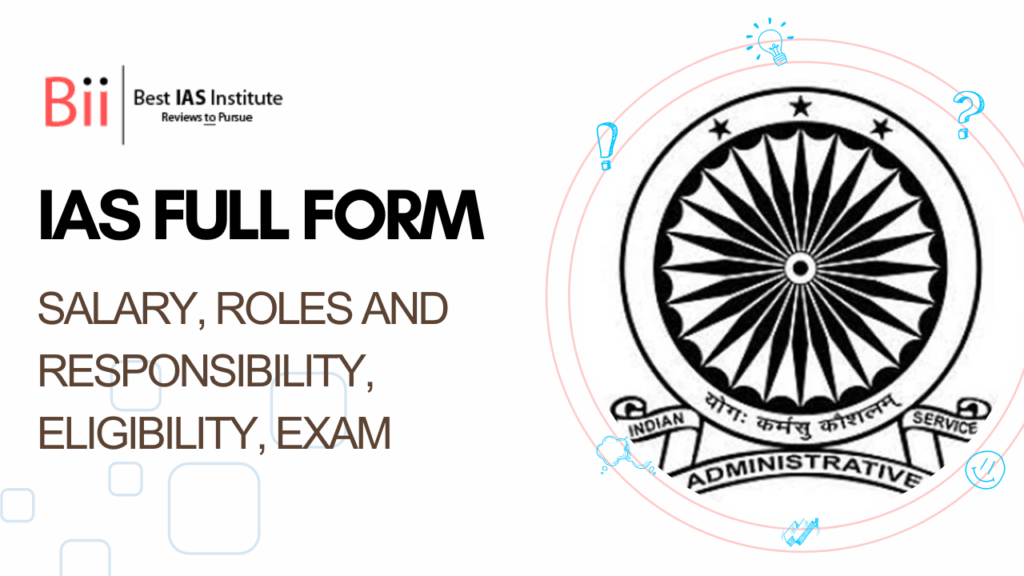
What is G20 Full Form?
The full form of G20 is Group of Twenty. G20 or Group of Twenty, is an international forum composed of 19 individual countries and the European Union. It was established to facilitate discussions and cooperation on global economic and financial issues. The G20 member countries represent a significant portion of the world’s population, landmass, and economic activity, making it a crucial platform for addressing various international challenges.
| G20 Full Form Overview | |
| G20 Full Form | Group of Twenty |
| Countries | 19 countries + European Union |
| Established | 26 September 1999 |
| Purpose | Global economic and financial coordination and cooperation |
| Focus Area | Economic stability, financial regulation, trade, development, climate change, and more |
| Theme of G20 Summit 2023 | Vasudhaiva Kutumbakam — One Earth, One Family, One Future |
What is G20?
The G20 (Group of Twenty), is a coalition of twenty major economies that convene to engage in discussions and coordinate international economic policies. This assembly was established in 1999 in the aftermath of the Asian financial crisis, with the primary objective of fostering dialogue and cooperation among its member states. The G20 comprises a diverse mix of both developed and developing nations, representing a cross-section of the global economic landscape.
Headquarters of the G20
The G20 (Group of Twenty) does not have a permanent headquarters like some international organizations. Instead, the G20 operates through a rotating presidency system. Each year, one member country takes on the role of the G20 presidency and hosts the annual G20 Leaders’ Summit, which is the most significant event within the G20 framework.
What are G20 Countries?
The Group of Twenty, commonly known as the G20, is an international forum comprising 19 individual countries and the European Union. These member countries are: Argentina, Australia, Brazil, Canada, China, France, Germany, India, Indonesia, Italy, Japan, Mexico, Russia, Saudi Arabia, South Africa, South Korea, Turkey, United Kingdom, United States and European Union (EU) is also a member of the G20, represented by the European Commission and the European Central Bank.
Why is the G20 Important for India?
The G20 is important for India for several reasons:
- Global Influence: As one of the world’s largest economies, India’s participation in the G20 allows it to have a say in shaping global economic policies and governance. It provides India with a platform to advocate for its interests and priorities on the world stage.
- Economic Growth: The G20 discussions often focus on economic stability, growth, and development. India can use its position in the G20 to promote policies that support its economic growth and development agenda.
- Global Challenges: The G20 addresses a wide range of global challenges, including climate change, sustainable development, and health crises like the COVID-19 pandemic. India’s involvement in these discussions is crucial as it faces many of these challenges on a large scale.
- Bilateral Relations: The G20 provides an opportunity for India to engage in bilateral discussions and negotiations with other major economies. It can use these meetings to strengthen its diplomatic and economic ties.
- Reforms: India can advocate for reforms in international financial institutions like the IMF and World Bank, which can benefit both India and other developing nations.
- Trade and Investment: The G20 discussions on trade and investment can have a significant impact on India’s trade policies and economic partnerships with other countries.
History of G20 Summit
The origins of the Group of Twenty (G20) can be traced back to the Asian financial crisis of 1997-1998, which had a profound impact on the economies of East and Southeast Asia. It was in response to this crisis that the G20 was established in 1999. Initially, it functioned as a platform for discussions among Central Bank Governors and Finance Ministers from both major industrialised nations and developing economies. Their primary focus was on addressing issues related to global economic and financial stability.
What is the G20 Presidency?
India’s G20 Presidency marks a significant chapter in its journey toward a sustainable and inclusive future. With a resolute focus on the theme of “One Earth-One Family-One Future,” India is dedicated to fostering global cooperation and promoting environmentally responsible choices to pave the way for a cleaner and greener world.
Who is the Current President of G20?
India assumed the presidency of the G20 on December 1, 2023, following the previous summit held in Bali, Indonesia. As the host country, India is preparing to welcome delegates from 20 nations who will participate in the G20 meeting scheduled for September 9 and 10, 2023, at Pragati Maidan. This summit is a significant event that brings together leaders from major economies to discuss pressing global issues.
G20 Summit 2023
India hosted the G20 Summit 2023 in the vibrant city of New Delhi from September 9th to 10th. This prestigious gathering of global leaders will take place at the state-of-the-art Bharat Mandapam Convention Centre, located within the sprawling Pragati Maidan Complex in the heart of New Delhi.
Conclusion
G20 includes promoting global economic stability, sustainable development, and inclusive growth. Member nations meet annually to discuss a wide range of issues, including monetary policy, trade, climate change, energy, and efforts to combat global poverty. The G20 is known for its summit meetings, which bring together heads of state and government, finance ministers, central bank governors, and other high-level officials. These meetings serve as a platform for leaders to engage in dialogue, coordinate policies, and work towards consensus on pressing global matters.
Over the years, the G20 has played a significant role in responding to international economic crises, such as the 2008 financial crisis, by coordinating economic policies and providing a forum for leaders to collaborate on solutions.



